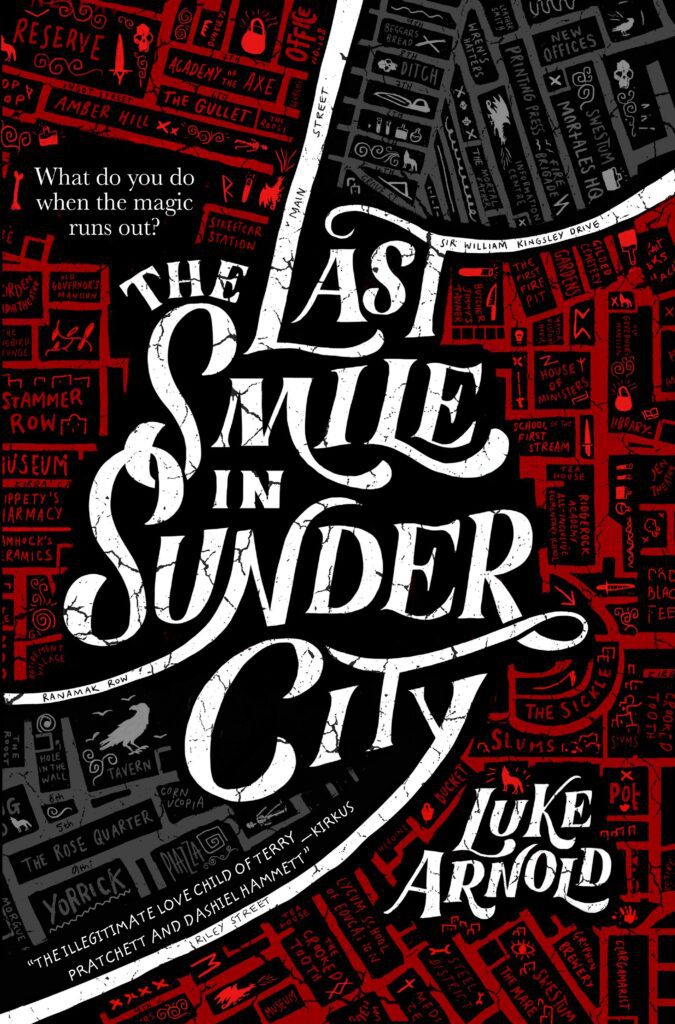
An idea squeezed into my head in 2023, after seeing so many of the book community gathering at conventions across the US and UK. And once my FOMO subsided, I got to thinking about who might be gathered together if we had similar conventions closer to home. Pending the master planning required to arrange a massive convention, I thought the next best thing might be to run an Australian & New Zealand author showcase. So, I sent out the call, with the only prerequisite for participating being the author had to have been born in either country or currently live there.
Its now 2024 and the Aussie / New Zealand Author Showcase is gathering steam again. Just when I thought it was over even more talent has emerged, at this rate its threatening to become year long event! I will continue to post their individual showcases at regular intervals. So hopefully you will enjoy these interactions with some very talented people. Please be sure to check out their work, sign up to their newsletters and follow them on their social media of choice. I make no apologies for any damage inflicted to your TBR’s!
Showcase No 20 finds me chatting with very talented Luke Arnold. Luke is the award-winning actor from projects such as Black Sails, Glitch and Never Tear Us Apart: The Untold Story of INXS as well as the author of The Fetch Phillips Archives; a series of fantastical detective stories which has third instalments to date.
- Do you feel that being an Aussie / Kiwi (or residing there) influences your writing?
Absolutely. I didn’t leave Australia until I was in my twenties so, for better or worse, I was brought up with a distinctly Australian outlook. It’s something that can be easily mischaracterised and also requires some distance to properly understand. Being both a young and old country, we’re still finding ourselves, experiencing growing pains, and struggling with our identity. At the same time, isolation and an abundance of natural resources means a lot of us are able to benefit from a high quality of life without working as hard as we’d need to in many other places in the world. I think a lot of Aussies know this in their bones, and it makes us nervous of “rocking the boat” for fear that we might lose the advantages we have. This aversion to change has some embarrassing repercussions on relationships between European Australians and Australia’s First Nations People, as well as our treatment of immigrants and asylum seekers.
We have a different kind of national identity to other western countries like the USA or Britain. We’re still trying to play the underdog – the little colony down under that punches above its weight – but that persona no longer fits us the way it used to. These themes seep into all my work. Fetch Phillips may have the outward appearance of a classic American hard-boiled hero, but he has an Australian heart. He’s someone who feels separate, a bit ignorant, reticent to become a leader, and happy to defer to those he sees as being older and more experienced. He values being humble and self-effacing, but there is safety in that identity. It allows him to shirk responsibility and hide in the shadows, even when it should be his moment to step forward. He’s a man who didn’t grow up when he was supposed to and is struggling to come of age too late. I feel like Australia is going through the same thing.
- What are some of the challenges being located so far away from the rest of the world, do have any tips for overcoming these?
When I was first trying to get published, I was lucky in that I was already working overseas and had some profile from my acting career. That’s a clear advantage I don’t take lightly. Though I’d always wanted to write, the thing that pushed me to finish my first manuscript was a desire to spend more time at home. My acting career was reaching a point where every job was in a different city, and I wanted to know that I could keep working creatively without needing to get on a plane. There are numerous advantages to being creative in Australia. One thing that is easily overlooked is that we have more safety nets that some other countries. I really notice this when I’m in the US. It’s terrifying to have no money in America. Of course, cost of living is going up everywhere, but I still think there are more ways to find a balanced life in Australia where you can keep a roof over your head and be creative at the same time. Yes, it’s a smaller market and it can be hard to break out overseas, but if the goal is to live a creative life where you do the thing you love without panicking that someone’s going to kick you out on the street, this is one of the best places in the world to establish yourself. Personally, I know I couldn’t have survived as a young actor long enough to build my career without the support systems that Australia offers.
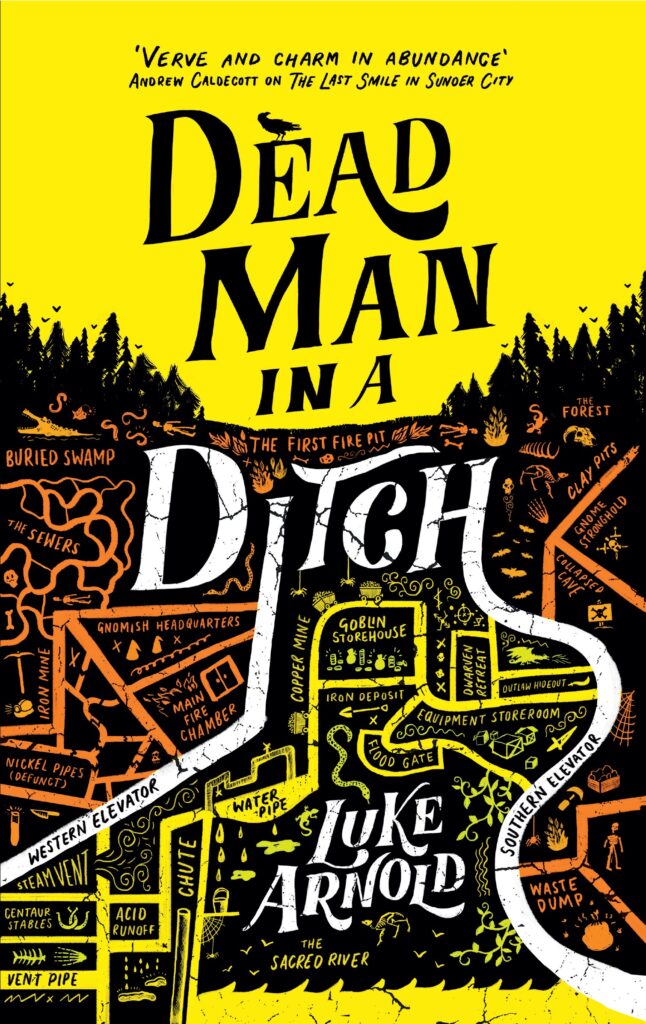
- How do you go about establishing connections in the book community? (any tips / suggestions)
I’m terrible at this. My first two novels came out in 2020 when we were all locked inside, and I’ve only met a handful of other authors in person. So of course, social media is a huge asset.
I mostly rely on creatives I’ve known for a long time. Every couple of weeks, I catch up with an author friend, Steven Lochran, I’ve known since high school, and we read each other’s stuff and discuss what we’re working on. I have a number of other people, some writers some not, who I use as beta readers when they have the time. Finding your own colleagues that you trust and feel comfortable to share your work with is more important than trying to network your way onto tables with notable people in the industry. If you do good work, then that will happen naturally.
- Do you have a favourite character to write? And conversely are there any of your characters that are the more of a struggle?
Fetch is fun because he still surprises me. There’s a lot of me in him, and he’s dumb enough that I can stuff my own fears and ideas into his head and have him try and make sense of things. It’s always harder when I have to write someone more intelligent – someone who might have the answers he seeks – because then I need to get ahead of my own pondering and come to some conclusions. Perhaps that’s why everyone is fallible in my world, and even those who seem to have the answers will likely fall to pieces before the end of the story.
- So aliens finally reveal themselves to us and your work is presented to them as example of what humanity has to offer, what do you hope they will take away from this intergalactic exchange?
I hope they’d see that we’re flawed, confused, vulnerable little things, and yet we keep trying to be better. Individually and collectively. My books are noir in tone, but the point isn’t to say that we’re all broken and corrupt. It’s about celebrating the way we keep trying to be good, even in the face of terrible darkness. Even when we’ve made mistakes that should he unforgivable. Even when the pressure – both without and within – feels like it’s going to crush us. Hopefully, if they’re looking at the state of things right now, it might help them see that we’re not completely lost.
- Tell us something about yourself that not many people know?
In this relentlessly online world, it’s hard to think of something that isn’t already out there. So I’m trying to think of something obscure. Maybe I’ll share that I play a bit of Beat Saber in VR and I’m determined get to the top of the leader board for Billie Eilish’s Happier Than Ever (normal difficulty). I’m broken the top 100 but I’m gunning for a top ten spot.
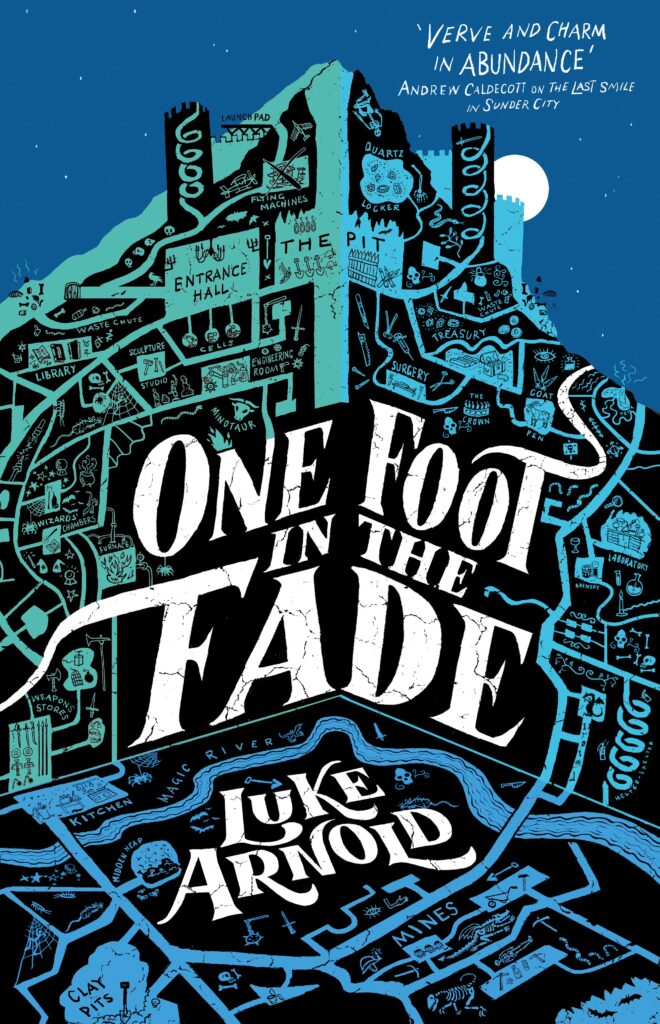
- What would you say is the best thing about being an author and the worst?
The best thing is that your work is all yours. There are very few creative endeavours out there where you can give so much of your internal world to another person. While our editors and publishers are integral, it’s not the same collaboration as making a film or playing a song with a band. This is all you.
The worst thing is that your work is all yours. You can get feedback and guidance, but it’s only your name on the cover. You must write every word, alone, without anyone encouraging you or sharing the load. Every time I write a book, I’m struck by what a monumental act of faith it is. One word after the other, day after day, for months, hoping that by the end it will be at all interesting to anyone else. Some days I can’t write a text to someone without crumbling under self-doubt, but then I have to find the motivation to pump out a few thousand words of fiction. And at the end of it all, when someone else enjoys the finished product, they will also be alone, somewhere far away, playing out the story in their own head, and you’ll be completely oblivious to how it’s making them feel. It requires a level of self-belief that is easier to summon some days more than others.
- Any other Aussie / Kiwi creatives you’d like to give a shout out for? (let’s spread the love)
I’m embarrassed to say that my reading really dropped off over the last year, but if you want some more noir, this time with a sci-fi twist, the 36 Streets by T.R.Napper’s is a fantastic cyberpunk story set in future Vietnam.
And I finally jumped into Maria Lewis’s The Rose Daughter and am bloody loving it.
- What’s your favourite quote or passage from one of your books?
Shit. The ones I love one day, I cringe at the next. The chapters about Fetch’s love interest, Amari, in The Last Smile in Sunder City still hold a special place for me though. They were the first pieces I felt confident sharing with other people.
There’s a part where Fetch just lists the days they spent together. As the series continues, I have to keep returning to it to make sure that if I allude to an encounter between Fetch and Amari, it’s related to one of the occasions included in that list. It’s simple, and Fetch doesn’t include much emotion or embellishment, but every time I go back to it, that tragic romantic melancholy gets back under my skin.
- What can you say about your current project or what you are planning next?
The fourth instalment of The Fetch Phillips Archives is in the editing phase, and I’m really excited to get it in people’s hands. I’ve enjoyed the fact that Fetch has not yet lived up to being either a hard-boiled detective or a fantasy hero. His guilt, self-doubt, and insecurity have taken his investigations (and in some cases the plot of the books) off the rails. That was always intentional, and I found that journey interesting to write, but Book 4 is a different beast. Fetch is still a problematic guy, but he’s put himself together enough to tackle his next case with more determination. So, for the first time, we have a more focused narrative revolving around a single string of murders. There are a lot of rewarding moments in this one for readers who were hoping Fetch might eventually catch a break.
But it’s still noir, so don’t except all sunshine and roses. Just a mystery where the main character isn’t getting in his own way quite so much.
Bonus Question: Lastly Vegemite* yes or no?
Absolutely. Thin layer with plenty of butter. It’s not something I crave when I’m away from home but get me back in the Aussie bush and I’ll be searching for a jar in no time.
* An iconic dark salty spread that (most) Australians slap on toast for breakfast (NB explanation for the rest of the world)
Author Bio:
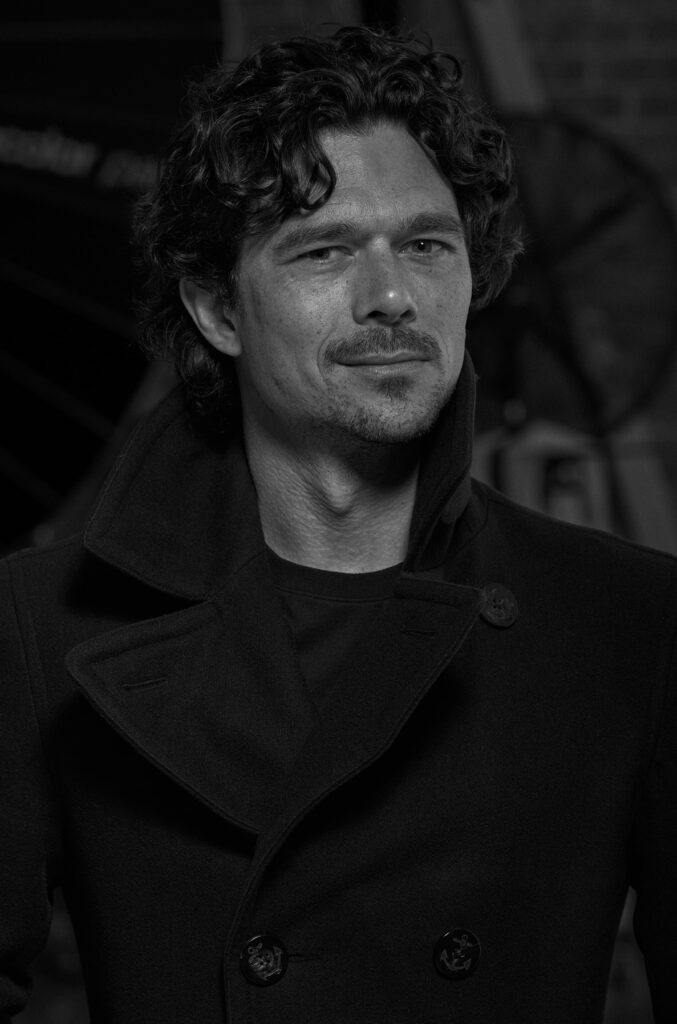
Luke Arnold was born in Australia and has spent the last decade acting his way around the world, playing iconic roles such as Long John Silver in the Emmy-winning Black Sails, Martin Scarsden in the screen adaptation of Chris Hammer’s Scrublands, and his award-winning turn as Michael Hutchence in the INXS mini-series Never Tear Us Apart. When he isn’t performing, Luke is a screenwriter, director and novelist.
He has published three books in The Fetch Phillips Archives, with the fourth instalment on the way. He performs the audiobooks for all his works, and The Last Smile in Sunder City was nominated for Best Fantasy at the 2021 Audie Awards.
Book/ Series Links
https://www.lukearnold.net/the-fetch-phillips-archives
Social Media Links
@longlukearnold on Insta, X, and TikTok

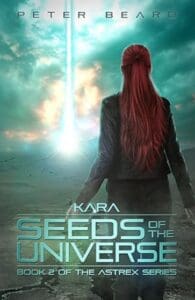
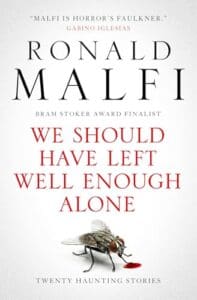
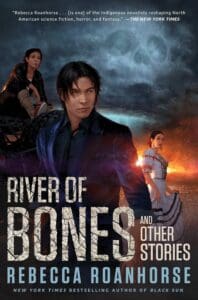
Leave a Reply